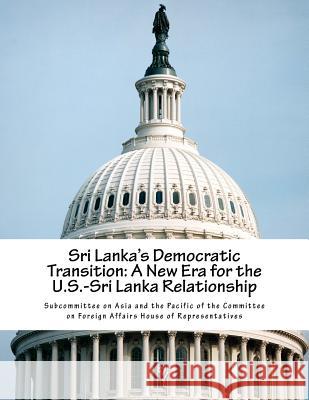Sri Lanka's Democratic Transition: A New Era for the U.S.-Sri Lanka Relationship » książka
Sri Lanka's Democratic Transition: A New Era for the U.S.-Sri Lanka Relationship
ISBN-13: 9781540784964 / Angielski / Miękka / 2016 / 44 str.
Sri Lanka's Democratic Transition: A New Era for the U.S.-Sri Lanka Relationship
ISBN-13: 9781540784964 / Angielski / Miękka / 2016 / 44 str.
(netto: 56,67 VAT: 5%)
Najniższa cena z 30 dni: 59,83
ok. 16-18 dni roboczych
Bez gwarancji dostawy przed świętami
Darmowa dostawa!
Sri Lanka's lengthy and tortuous civil war between the majority Sinhalese and the minority Tamils of the north and east ended in 2009 but the country remains challenged by deep divisions. Sri Lanka's prior leader, President Rajapaksa, steered the country in an authoritarian direction which included allegations of pervasive human rights abuses, rampant corruption and the failure to follow the rule of law. In 2015, the Sri Lankan people chose a new path with the election of President Sirisena and Prime Minister Wickremesinghe. Relations between the U.S. and Sri Lanka under the Rajapaksa government were often strained due in part to human rights concerns and the treatment of the minority Tamil population. We are optimistic that the Sirisena-led government is committed to change and have already begun implementing important reforms. In 2015, the Sri Lankan Parliament passed its nineteenth constitutional amendment to strengthen democratic governance and the government co-sponsored a U.N. Civil Rights Council resolution addressing atrocities committed during the civil war. Secretary Kerry announced a U.S. assistance commitment of $40 million to support comprehensive reforms in Sri Lanka, which the administration hopes will have a significant effect on the trajectory of Sri Lanka's democratic reform and reconciliation process. Closer U.S.-Sri Lankan ties founded in democratic values will facilitate a stronger foundation that will serve as a solid basis for broader cooperation in the Indian Ocean.
Zawartość książki może nie spełniać oczekiwań – reklamacje nie obejmują treści, która mogła nie być redakcyjnie ani merytorycznie opracowana.











